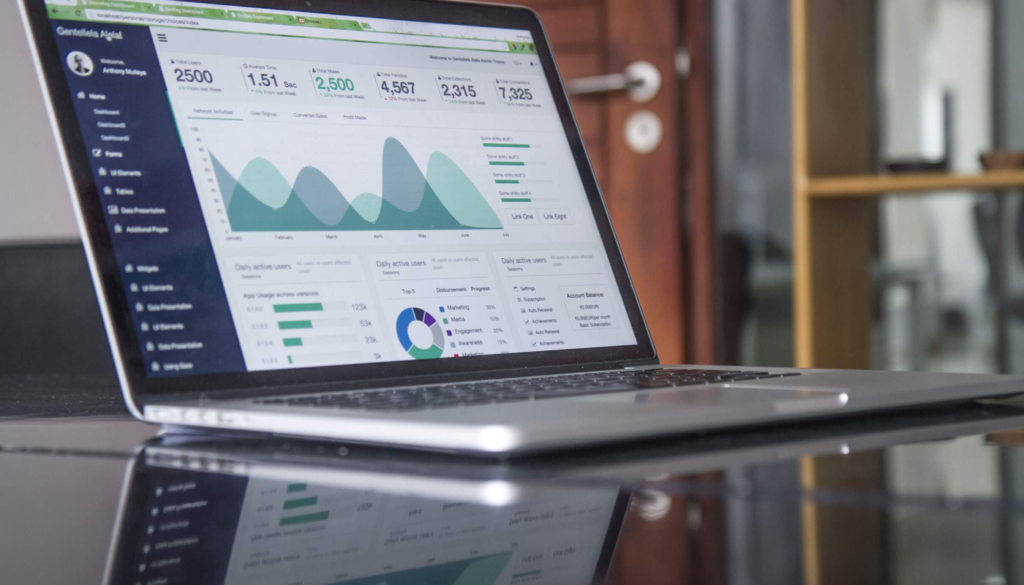Influencer marketing is getting traction in b2b marketing circles, and for good reason. With the pandemic and the rise of social media, it’s easier than ever to find and impact b2b buyers.
Influencers are thought leaders in your industry and share their experiences with potential customers through the stories they tell and the content they publish.
In this blog post, I’ll show you how to put together an influencer marketing plan that will help your b2b company connect and influence your buyers.
What is a B2B influencer?
Business influencers are different from their consumer counterparts because they are recognized as industry authorities.
They have experience in their industry and this is proven out through their work history and the online content they publish.
Because they are referred to as “influencers,” many marketers assume they have to have large social followings to be considered influential.
Nothing could be further from the truth.
In fact, many B2B influencers have small social media followings when compared to B2C influencers on Instagram.
The main difference is that the content they publish is directed to the industry or business they operate so it is directed to a specific business audience.
How do influencers help B2B companies?
Influencers interact with your buyers all the time.
They’re active in private communities where your buyers congregate, publish content they find helpful and valuable, and often interact directly with them by answering questions and giving advice.
This is because many influencers operate as independent industry analysts, they are asked to provide insights and analysis to their clients and followers.
Therefore, working with influencers helps your company build brand affinity and can generate leads that convert into revenue opportunities.

Establish clear goals and objectives at the start
Your goals and objectives are critical to the success of your campaign. Without them, you cannot choose KPIs to measure your ROI.
Determine your goals and objectives before contacting an influencer. The more specific your goal or objective, the better chance there is that it can be achieved.
Moreover, clear objectives help you determine how much to spend on the campaign, what kind of content you want to obtain, and which platforms are best for them to promote it on.
Other considerations to consider include:
When identifying a goal or objective consider asking yourself these questions: What is my desired result? Whom do I want this message to reach? How many potential buyers would benefit from hearing this information?
For example, if one of your goals or objectives was to “increase downloads of a research report by 20%,” then ask yourself when you last have a lead magnate like that and how did it perform?
So, establish KPIs based on past campaigns.
Know what kind of content your buyers consume
The better you know your customers, the better you can market to them.
If you know what kind of content they like to consume, you can look for influencers that create that content.
For example, if your buying audience likes podcasts, you can find influencers who host podcasts and get you or your spokesperson onto them as a guest.
If your ideal customers operate in private communities, you can seek out influencers who are a part of those communities or who manage their own.
How to Find Influencers
Finding influencers is simple and can be done through a simple Google search or using one of the many influencer platforms.
Look for individuals who have relevance in your industry, produce high-quality content that gets consumed, and are active on social media.
You can do this by looking at their social media and website, such as LinkedIn, Twitter, Facebook, or Instagram accounts.
Next, reach out to these people – either via email or DM – then start engaging with their content on social media as well as their websites.
Offer up ideas about how they could use your product/service if possible and follow-up accordingly based on responses you receive from them.
How to Assess Influencers
Vetting candidates takes time if you want to do it well.
The first thing to check is their social media following. Is it legit? Did they buy fake followers? If they did, how many do they have?
Tools like SocialBlade, Hypeauditor, and TwitterAudit will help you do this. They are easy to use, fast, and fairly comprehensive.
Once you feel comfortable that their social media followings are legit, concentrate on their professional backgrounds and their level of expertise.
Some of the questions you should ask include:
– Are they authorities in the niche in which they operate?
– What kind of content do they publish and where?
– Which social networks do they use? Typically, B2B influencers use LinkedIn, Facebook, and Twitter. Some may be on Instagram and TikTok too.
– Where does their audience reside (the more focused the better) and does their audience include your ideal buyers?
– What are their reach and engagement rates on social media?
– How well do they communicate to this audience and are they be a good fit for your company’s brand?
If you need more help finding and vetting influencers, check out our Learn page for free tools
Don’t be afraid to pay them
Some influencers may charge fees for their services while others might offer them free of charge in exchange for an introduction to the company.
You’ll need to do some research on potential candidates and decide what you’re willing to pay based on your budget, but even a few hundred dollars can go far with the right influencer.
However, paying influencers is rapidly becoming the norm these days so expect to pay some to create content for you.
Also, many B2B influencers operate as independent analysts and therefore offer services other than simple content creation.
Inquire with each individual influencer to get the low down on what they charge and the services they offer.
Build Relationships
Building relationships with influencers is important because they can lead to mutually beneficial outcomes going forward.
If you have the budget for it, consider sponsoring an influencer’s podcast or event in exchange for visibility.
Influencers also appreciate being able to speak at events as they provide great networking opportunities, so if you have opportunities to have them do so at your company event, consider it.
Finishing Up
Influencers offer you a competitive edge if you leverage them correctly.
Most buyers don’t trust brands and would rather listen to people they follow and trust for recommendations on products and services.
Working with influencers inserts you into that process and positions you to capture demand where it already exists and create it going forward.
Need help?
We can help your company select the right mix of influencers, build a strategy and create a campaign targeted to your buyers.


The author’s expertise shines through, as they address key considerations such as identifying relevant influencers, establishing clear objectives, and measuring the impact of campaigns. This article has truly provided me with a fresh perspective on B2B influencer marketing and has armed me with the knowledge I need to develop a successful plan. Kudos to The Influence Marketer for delivering such a valuable and unique resource!
Thanks Ronnie. I’m glad you got a lot out of the article. B2B influence marketing, as you can tell, is a bit different than its consumer cousin but if you keep these principles in mind, you’ll be successful at it.
Pingback: How to Improve your Content Strategy with Podcasts - // 551 Media LLC
Perfect tips to set up b2b influencer marketing plan. Thanks for sharing an informative piece of the article.